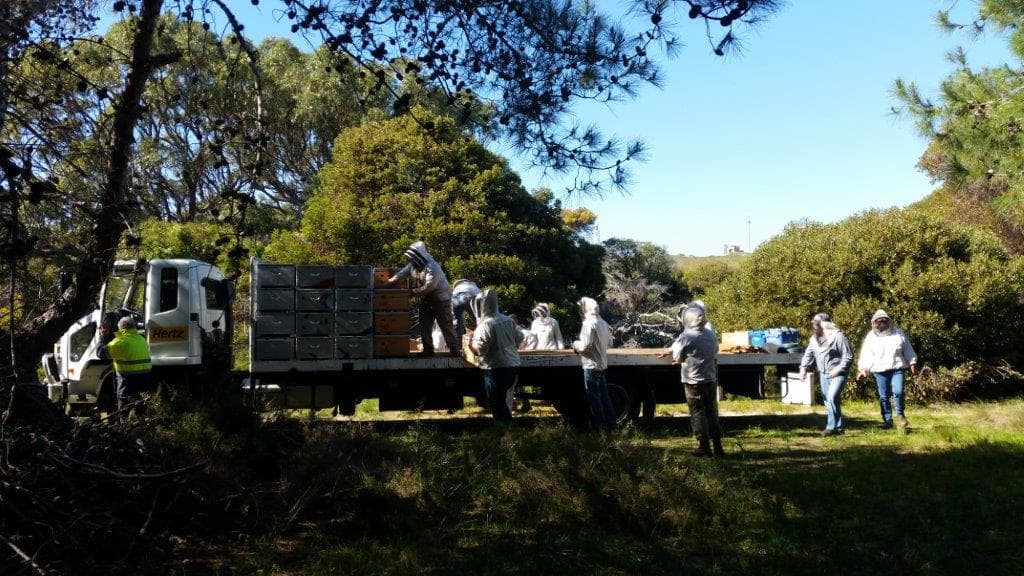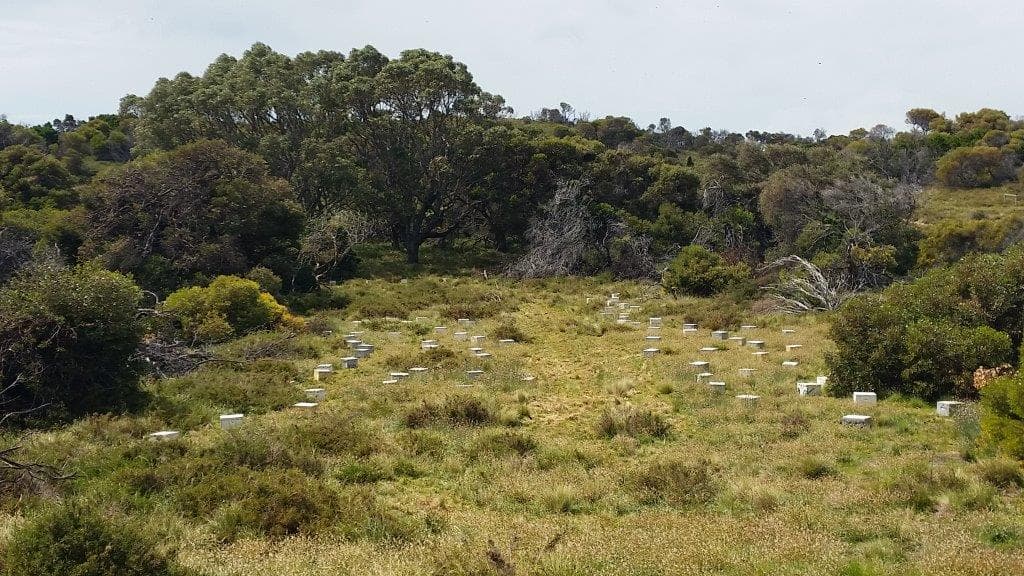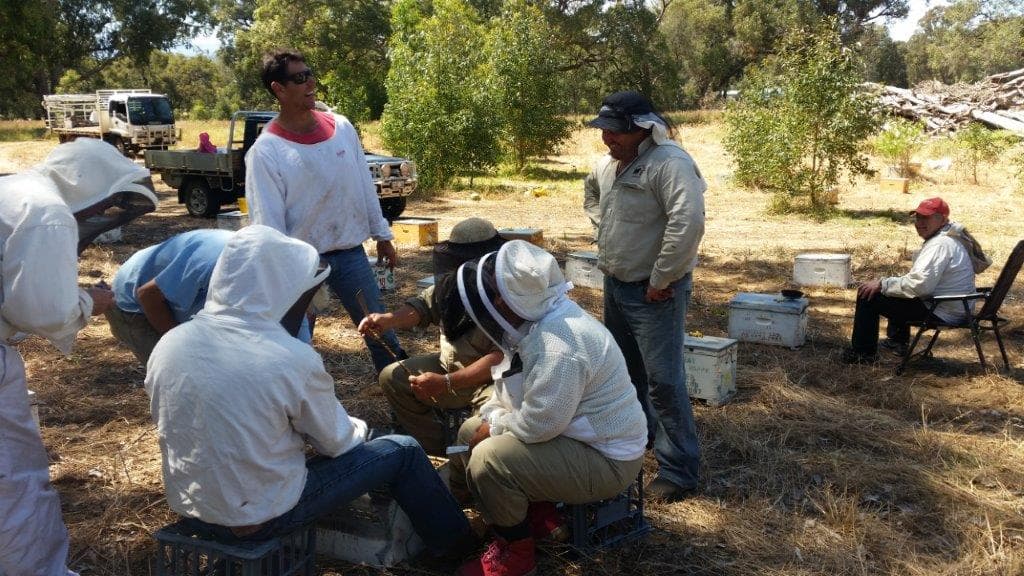Budding cotton scientist set on creating a crop that can cop heat-stress
 HONEY BEE & POLLINATION / Tuesday, 2 November 2021
HONEY BEE & POLLINATION / Tuesday, 2 November 2021
Best in the West: Improving the genetics of WA bee stock

Western Australia is an important region for the Australian honey bee industry, with a breeding program dating back to the 1980s. With good breeding stock maintained in Western Australia for over forty years, the region is a critical part of the success of Australia’s national genetic improvement program – Plan Bee.
The Western Australian breeding program is managed by Better Bees WA Inc, led by chairman, John Davies.
According to John, the success and longevity of the program can be attributed to the collaboration and enthusiasm of participants.
“Everyone who has participated in this program over its forty year history has not only brought quality stock but an enthusiasm for producing better bees, for the greater good of the industry,” he said.
“We have a devoted cohort of members who put politics aside to volunteer their time to the program by assembling good quality nucs, recording data and support us with the complicated logistics involved.”
The spring breeding season is the busiest time of year, as drone combs and around 800 nucs are assembled and transported to Rottnest Island. The nucs are left on the island for two weeks after mating to establish a brood pattern then moved back to a central location on the mainland for assessment. Typically, there is around about a 80-85% mating success rate.
This logistical challenge is managed each year by a committed team including Tiff Bates, Apiary Manager for CRCHBP at the University of Western Australia, who says despite the stress involved, the commencement of the Rottnest mission each year is like Christmas for many WA breeders.
“Our community truly comes out in force for the breeding season, not only is it a good time to connect, but our queen breeders know that they are going to get solid results from the activity, which improves the value of their stock,” she said.
“The participants of the program have seen the performance of their own stock improve when they introduce the Rottnest queens back into their production hives and that’s why they keep coming back each year”.
Moving forward, the focus for the WA side of the national program, is on data collection to measure the performance of hives, and help breeders select using specific criteria. The development of standard evaluation of hive traits thereby improving the selection success across the lines though out the queen breeding program.
Ever the innovators, the Better Bees WA team are in the process of developing a tablet app that enables beekeepers to enter data on queens electronically. This data can then be transported directly to the national database of the Plan Bee program, which can then be used to help improve genetic outcomes nationally.
The app is currently still in trials, with beekeeper feedback being used to guide the future development of the app to ensure it built in a way that will ensure uptake.
Functionality is planned which will allow beekeepers to take photos of queens and brood to ensure that notes are matched to physical appearance and traits.
According to John, the future of beekeeping is strong thanks to the support and input of the Western Australian beekeeping community.
“Over the last forty years, thanks to the commitment of our industry, we have set a solid baseline of honey bee genetics in WA.
“We are participants in the national genetic improvement program and look forward to contributing and working closely with beekeepers and breeders across the country.”
Beekeepers wanting to get involved with genetic selection in Western Australia should contact John Davies () or Tiff Bates () directly.
Plan Bee (National Honey Bee Genetic Improvement Program) is supported by funding from the Australian Government Department of Agriculture, Water and the Environment as part of its Rural Research and Development for Profit program. The project is further supported by AgriFutures Australia, the Department of Regional NSW, University of Sydney, University of New England Animal Genetics and Breeding Unit, Better Bees WA Inc, Wheen Bee Foundation, Costa Group, Olam, Beechworth Honey, Monson’s Honey and Pollination, South Pacific Seeds, Australian Queen Bee Breeders Association, Australian Honey Bee Industry Council, and commercial beekeepers.


Latest News
-
Budding cotton scientist set on creating a crop that can cop heat-stress WORKFORCE AND LEADERSHIP / 02.11.21
WORKFORCE AND LEADERSHIP / 02.11.21 -
Essential tools and proactive biosecurity measures for sustainable Sea Cucumber industry growth EMERGING INDUSTRIES / 02.11.21
EMERGING INDUSTRIES / 02.11.21 -
New workforce strategy for Australia’s $8 billion+ chicken meat industry CHICKEN MEAT / 02.11.21
CHICKEN MEAT / 02.11.21 -
‘One-size-fits-all will no longer suffice’: AgriFutures Australia reveals new revenue opportunities for rural industries NATIONAL CHALLENGES AND OPPORTUNITIES / 02.11.21
NATIONAL CHALLENGES AND OPPORTUNITIES / 02.11.21






